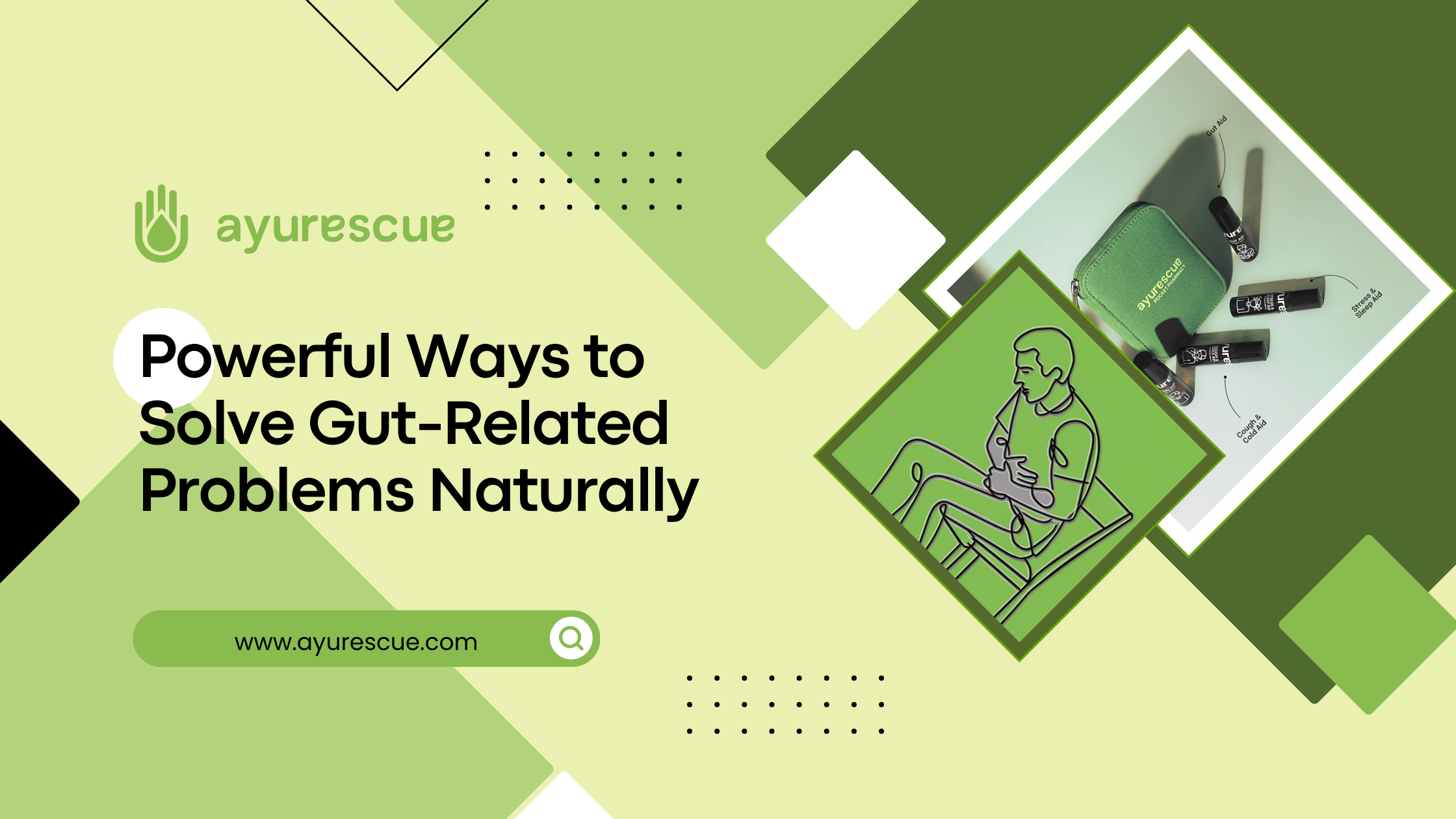Article: Powerful Ways to Solve Gut-Related Problems Naturally

Powerful Ways to Solve Gut-Related Problems Naturally
Introduction: Why Gut Health Matters
The Gut is frequently called the "second brain" since it influences everything from digestion to mental well-being. A well-functioning digestive system ensures proper nutrient absorption, boosts immunity, and prevents diseases. However, many people struggle with gut-related issues due to poor dietary habits, stress, and other lifestyle factors.
Common Digestive Issues:
- Bloating and excessive gas
- Acid reflux and heartburn
- Constipation or diarrhea
- Food intolerances and sensitivities
- Irritable Bowel Syndrome (IBS)
- Leaky Gut Syndrome
- Frequent nausea or indigestion
- If you experience any of these symptoms regularly, it’s crucial to address them early to avoid long-term complications.
Get Enough Sleep
Sleep plays a fundamental role in maintaining gut health. Poor sleep quality can lead to disruptions in the gut microbiome, which can then cause digestive issues, inflammation, and even weight gain. During sleep, the body undergoes essential repair processes, including the regeneration of gut lining and the regulation of gut bacteria.
How Poor Sleep Affects Digestion:
Disrupts Gut Microbiome Balance: Lack of sleep alters the composition of gut bacteria, reducing the population of beneficial microbes and increasing harmful ones.
Raises Stress Hormones: Poor sleep elevates cortisol levels, which can slow digestion, increase bloating, and contribute to irritable bowel symptoms.
Impacts Metabolism: Inconsistent sleep patterns can slow down metabolism, making it harder for the body to break down food efficiently.
Tips for Quality Sleep:
Stick to a Sleep Routine: Go to bed and wake up at the same time daily to regulate your internal clock.
Limit Blue Light Exposure: Reduce screen time at least one hour before bed to support melatonin production.
Create a Relaxing Bedtime Routine: Deep breathing exercises, meditation, and reading a book can help ease stress before sleeping.
Avoid Late-Night Eating: Heavy meals close to bedtime can lead to acid reflux and digestive discomfort.
Exercise Regularly
Exercise is not only essential for physical fitness but also for digestive health. Regular movement promotes gut motility, enhances blood circulation to digestive organs, and helps maintain a balanced gut microbiome.
Best Exercises for Gut Health:
Walking: A simple 30-minute walk after meals can promote digestion and reduce bloating.
Yoga: Certain yoga poses, such as twists and forward bends, massage digestive organs and relieve constipation.
Strength Training: Lifting weights helps regulate metabolism, which plays a role in efficient digestion.
Cardio Workouts: Activities like running, cycling, and swimming increase blood flow, stimulating gut activity.
Consider Digestive Enzymes
Digestive enzymes are proteins that break down food into nutrients for digestion. Some people may have insufficient enzyme production, leading to bloating, indigestion, and nutrient deficiencies.
How Digestive Enzymes Help:
- Break down proteins, carbohydrates, and fats for easy absorption.
- Reduce bloating and gas by improving food digestion.
- Support individuals with conditions like lactose intolerance or acid reflux.
Natural Sources of Digestive Enzymes:
Pineapple: Contains bromelain, which helps digest proteins.
Papaya: Rich in papain, an enzyme that aids in protein breakdown.
Fermented Foods: Yogurt, kefir, kimchi, and sauerkraut naturally contain beneficial enzymes.
Apple Cider Vinegar: Helps stimulate stomach acid production, supporting digestion.
Avoid Overuse of Antibiotics
Antibiotics are essential for treating bacterial infections, but overuse can lead to the destruction of good gut bacteria, leading to imbalances known as dysbiosis.
Why Overusing Antibiotics Harms Gut Health:
- Kills both harmful and beneficial bacteria.
- Can lead to antibiotic resistance and weakened immune function.
- Increases the risk of gut-related issues like diarrhea and yeast infections.
Natural Alternatives to Antibiotics:
- Garlic: Has powerful antibacterial and antiviral properties.
- Ginger: Helps fight infections and reduces inflammation.
- Turmeric: Supports gut immunity and reduces gut inflammation.
- Probiotic Supplements: Replenish beneficial bacteria after antibiotic use.
FAQs About Gut Health
1. How long does it take to heal gut health?
The healing process varies, but noticeable improvements can occur within 2-6 weeks with the right dietary and lifestyle changes. Long-term habits ensure lasting gut health.
2. What foods destroy gut bacteria?
Highly processed foods, excessive sugar, artificial sweeteners, and fried foods disrupt gut microbiome balance and should be minimized.
3. Can stress cause gut problems?
Yes, chronic stress increases cortisol levels, which negatively impact gut bacteria, slow digestion, and contribute to conditions like IBS.
4. Do probiotics help with digestion?
Absolutely! Probiotics help restore gut flora, improve digestion, reduce inflammation, and enhance overall gut function.
5. Is fasting good for gut health?
Intermittent fasting allows the digestive system to rest, reduces gut inflammation, and promotes a healthy gut microbiome.
6. How does hydration affect digestion?
Drinking enough water helps break down food, absorb nutrients, and move waste efficiently through the intestines, preventing constipation.
Final thoughts
Taking care of your gut health is essential for overall health. By incorporating these powerful strategies, you can enhance digestion, strengthen immunity, and maintain optimal gut function. Start making these lifestyle changes today for a healthier digestive system!

